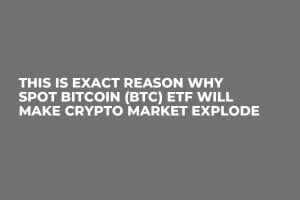
Disclaimer: The opinions expressed by our writers are their own and do not represent the views of U.Today. The financial and market information provided on U.Today is intended for informational purposes only. U.Today is not liable for any financial losses incurred while trading cryptocurrencies. Conduct your own research by contacting financial experts before making any investment decisions. We believe that all content is accurate as of the date of publication, but certain offers mentioned may no longer be available.
On Christmas day, the Bitcoin network achieved an historic milestone, recording an all-time high mining hash rate of 544 exahashes per second. This surge, reflecting a remarkable increase in hash rates since the year's commencement, echoes the digital asset's impressive price trajectory, which has soared by 163% since the beginning of the year.
Max Keiser, an influential Bitcoin advocate and advisor to the president of El Salvador, recently took to social media, suggesting an implied hash-adjusted price for BTC that surpasses $400,000. While this sparks speculation about potential price models, the practical implications are exerting increasing pressure on miners grappling with a substantial dip in profitability.
The parallel surge in both hash rates and BTC price presents a paradox for the mining community. A heightened hash rate signifies that miners must intensify their efforts to secure the next block, translating into elevated operational costs and a challenging operational landscape.
Inscriptions hype
However, the euphoria surrounding the record-breaking hash rate is tempered by the hash price, a pivotal metric gauging mining profitability, which has experienced a downturn over the past week. Presently standing at $0.09 per terahashes per second per day, this decline is attributed to a fading interest in the BRC-20 ordinal inscription trend.
The profitability decline is underscored by a significant decrease from the 2023 peak on Dec. 17. This shift in hash price dynamics is a clear reflection of the diminishing enthusiasm surrounding inscription hype, which, in their heyday, led to increased demand and subsequently, elevated transaction fees.


 Vladislav Sopov
Vladislav Sopov Dan Burgin
Dan Burgin